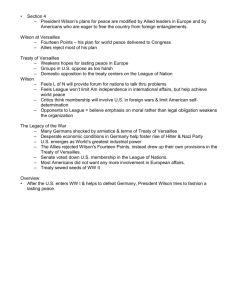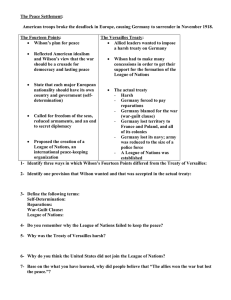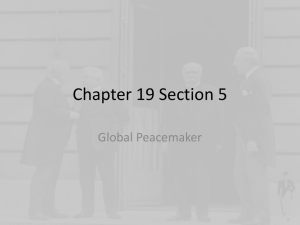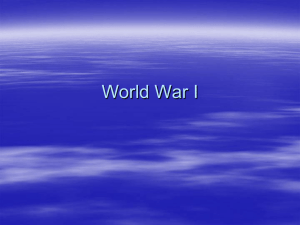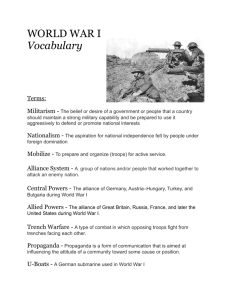11.4 Notes
advertisement
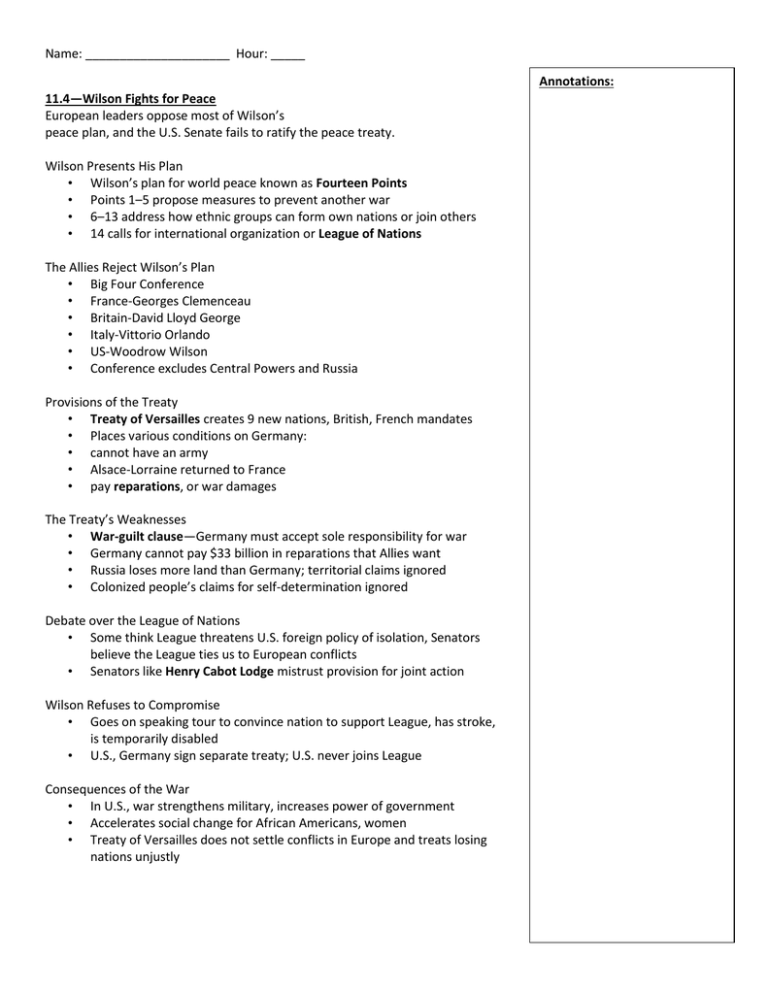
Name: _____________________ Hour: _____ Annotations: 11.4—Wilson Fights for Peace European leaders oppose most of Wilson’s peace plan, and the U.S. Senate fails to ratify the peace treaty. Wilson Presents His Plan • Wilson’s plan for world peace known as Fourteen Points • Points 1–5 propose measures to prevent another war • 6–13 address how ethnic groups can form own nations or join others • 14 calls for international organization or League of Nations The Allies Reject Wilson’s Plan • Big Four Conference • France-Georges Clemenceau • Britain-David Lloyd George • Italy-Vittorio Orlando • US-Woodrow Wilson • Conference excludes Central Powers and Russia Provisions of the Treaty • Treaty of Versailles creates 9 new nations, British, French mandates • Places various conditions on Germany: • cannot have an army • Alsace-Lorraine returned to France • pay reparations, or war damages The Treaty’s Weaknesses • War-guilt clause—Germany must accept sole responsibility for war • Germany cannot pay $33 billion in reparations that Allies want • Russia loses more land than Germany; territorial claims ignored • Colonized people’s claims for self-determination ignored Debate over the League of Nations • Some think League threatens U.S. foreign policy of isolation, Senators believe the League ties us to European conflicts • Senators like Henry Cabot Lodge mistrust provision for joint action Wilson Refuses to Compromise • Goes on speaking tour to convince nation to support League, has stroke, is temporarily disabled • U.S., Germany sign separate treaty; U.S. never joins League Consequences of the War • In U.S., war strengthens military, increases power of government • Accelerates social change for African Americans, women • Treaty of Versailles does not settle conflicts in Europe and treats losing nations unjustly



